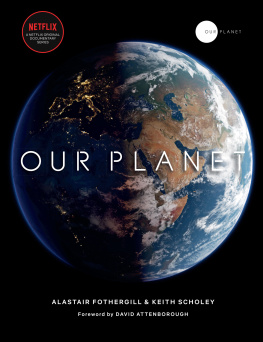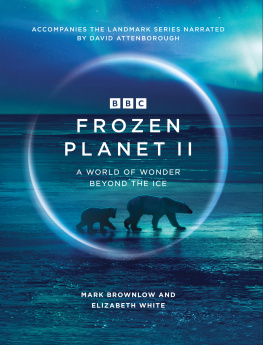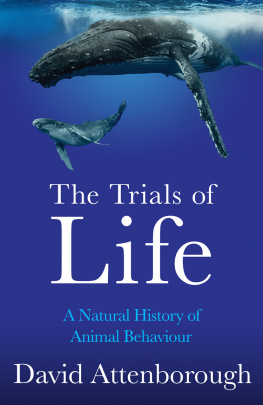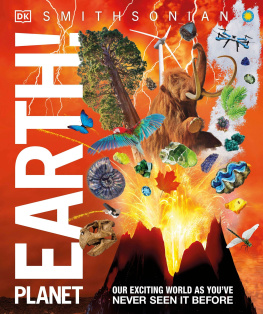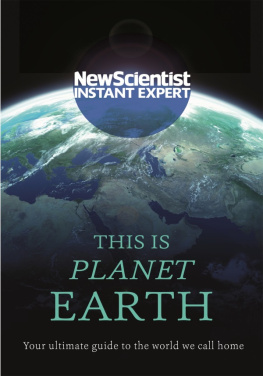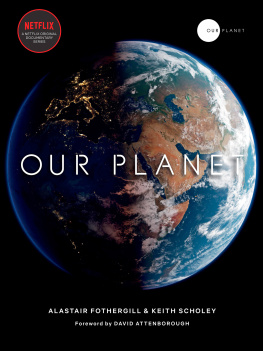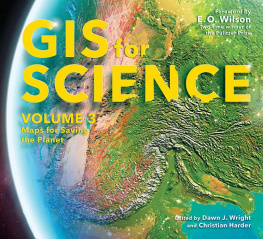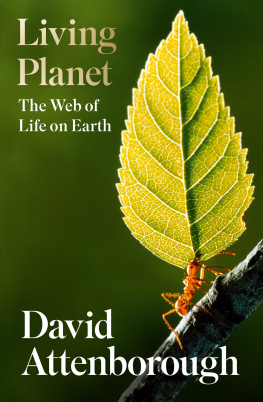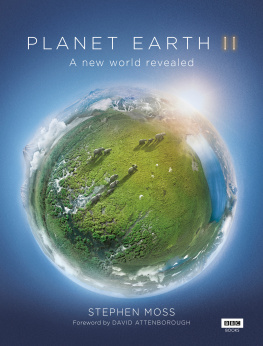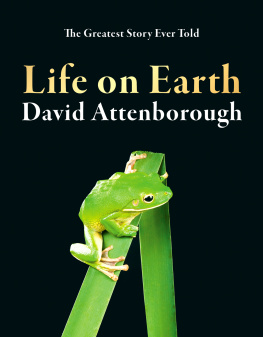TRANSWORLD PUBLISHERS
6163 Uxbridge Road, London W5 5SA
www.penguin.co.uk
Transworld is part of the Penguin Random House group of companies whose addresses can be found at global.penguinrandomhouse.com

First published in Great Britain in 2019 by Bantam Press
an imprint of Transworld Publishers
This book is published to accompany the television series entitled Our Planet first broadcast on Netflix in 2019
Copyright Keith Scholey and Alastair Fothergill 2019
Keith Scholey and Alastair Fothergill have asserted their rights under the Copyright, Designs and Patents Act 1988 to be identified as the authors of this work.
Every effort has been made to obtain the necessary permissions with reference to copyright material, both illustrative and quoted. We apologize for any omissions in this respect and will be pleased to make the appropriate acknowledgements in any future edition.
A CIP catalogue record for this book is available from the British Library.
Commissioning editor: Susanna Wadeson
Project editor: Rosamund Kidman Cox
Design: Smith & Gilmour
Picture researcher: Laura Barwick
Image grading: Stephen Johnson, www.copyrightimage.co.uk
Production: Catriona Hillerton
ISBN 9781473569225
This ebook is copyright material and must not be copied, reproduced, transferred, distributed, leased, licensed or publicly performed or used in any way except as specifically permitted in writing by the publishers, as allowed under the terms and conditions under which it was purchased or as strictly permitted by applicable copyright law. Any unauthorized distribution or use of this text may be a direct infringement of the authors and publishers rights and those responsible may be liable in law accordingly.
FOREWORD
We are the most inquisitive and inventive of all animals. Fifty years ago, our curiosity about the worlds beyond our planet led to one of the most stupendous achievements in human history. We travelled to the moon. Paradoxically, the pictures of Earth taken on that Apollo mission made us see our own world anew. Until then, it had seemed vast and its resources infinite. Those pictures helped us realise more vividly than ever before that the Earth is unique and wonderful but also that its space and resources are limited.
Now, 50 years on, we have no doubt that profound changes are happening on our planet. We are entering a new geological era, not as in the past when changes happened over millions of years, not even over thousands of years or centuries, but within decades within my lifetime.
These changes are as rapid and as great as when the planet was struck by an asteroid. But this time they result from the global impact of our own species. In just four decades, the number of wild animals has halved, and biodiversity is declining in every region of the world, all as a consequence of the way we have chosen to live. It is a global catastrophe.
But as the problems are of our making, so the solutions can be ours too. As this book tells us, from every region of the world there are stories that reveal natures resilience and show how restoration is possible. In this digital age, we can communicate that message to all parts of the globe, at the same time showing the glories, the splendours, the marvels of the natural world that still exist on our planet.
If large enough areas are connected and protected, wildlife thrives and we benefit. Where we protect marine hotspots, we benefit from the increase in fish and other marine resources. Where we restore the natural water cycle, we benefit from the resulting fecundity of life in the rivers, wetlands and floodplains. Forests are dynamic and resilient and can rise from the ashes, if we let them, and will continue to provide resources and global functions from which, again, we benefit.
That the natural world is resilient gives me great hope. Technology also offers hope, that revolutionary ways will be found to store and transmit energy from renewable sources, doing away with any need to burn fossil fuels. Neither is it too late to choose the future we want if we act now and act together. There is a shift worldwide. More people than ever are aware of the problems and the solutions. So we must back the leaders who are prepared to do something and pressure those who are not.
The action also has to be global. The chance for that to happen is when the worlds nations meet to review the steps being taken to halt both climate change and the loss of biodiversity. From those meetings we must hope that there will come a change in our politics and economics. The future of all life on this planet depends on our willingness to take action now.


INDEX
The page references in this index correspond to the print edition from which this ebook was created, and clicking on them will take you to the the location in the ebook where the equivalent print page would begin. To find a specific word or phrase from the index, please use the search feature of your ebook reader.
A
Aborigines: clearing land
Abruzzi Apennines
Aceh
acidification, oceans
Adams River
Afghanistan
Africa: dams
disappearing lakes
grasslands
rainforests
woodlands
African wild dogs
agouti
agriculture: agroforestry
and deserts
fertilizers
on former grasslands
green revolution
irrigation
livestock farming
Akamba people
Alaska
Albania
albatrosses
algae
Algoa Bay
Alps
Amazon rainforest
Amazon River
Amboseli National Park
American Prairie Reserve
amphibians
amphipods
anchovies
ancient civilizations
Andes
Angkor Wat
Angola
Antarctica
anteaters, giant
antelopes
Anthropocene
ants: and fungi
aquifers
Arabian desert
Aral Sea
archerfish
Arctic
Arctic Council
Arctic National Wildlife Refuge
Arctic Ocean
Arizona
armadillos
aspen trees
asses, wild
Atacama Desert
Atlantic dry forest
Atlantic Ocean
atolls
auks, little
Australia: coastal seas
Great Barrier Reef
Lake Eyre
outback
rivers
Austria
Ayoreo people
Azraq oasis
Aztec Land and Cattle Company
B
Babatag mountains
bacteria, hydrothermal vents
Baffin Bay
Baffin Island
Balkhash, Lake
Baltic herring fishery
Baltic Sea
Bangladesh
Barents Sea
basket stars
Basque people
Batang Toru
bears
black
brown
grizzly
polar
spectacled
beavers
bees, orchid
beetles
Beidaihe
Beijing
Belarus
Belize
Belize Barrier Reef
Bellingshausen Sea
Belnap, Jayne
Benin
Bering Sea
Bering Strait
Berlin
Bhutan
Bialowieza Forest
billabongs
billfish
biodiversity: coastal seas
coral reefs
in forests
grasslands
hydrothermal vents
international conventions
kelp forests
loss of
Madagascar
Pantanal
rainforests
rivers
birch trees
Next page
